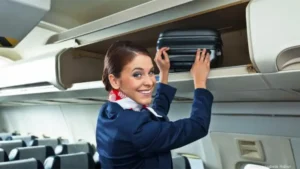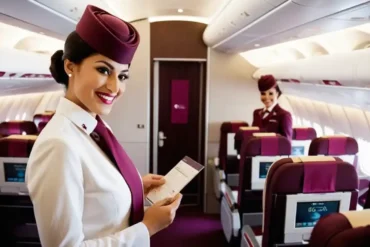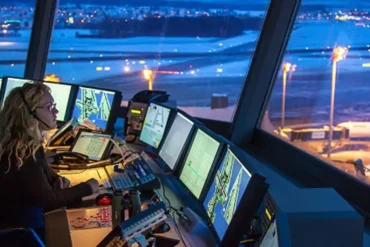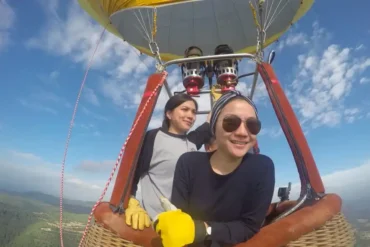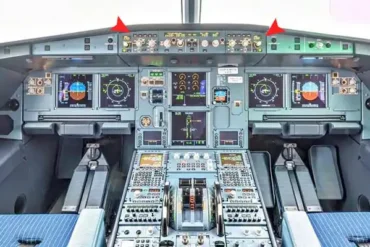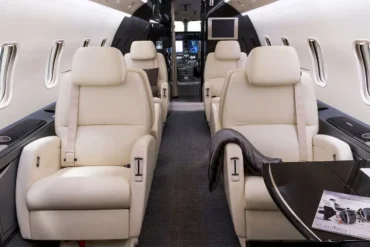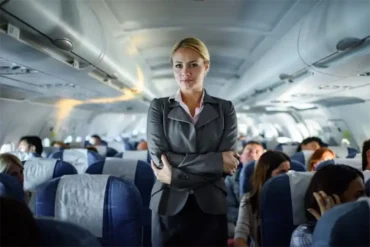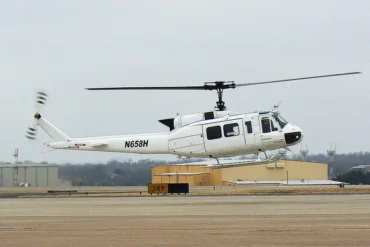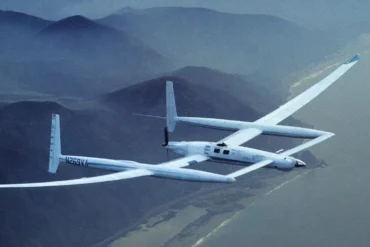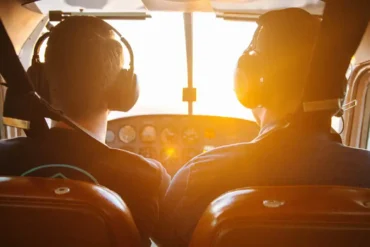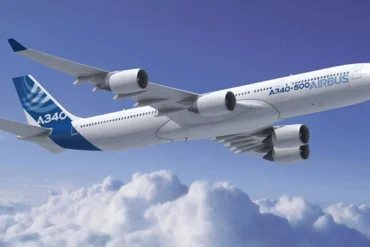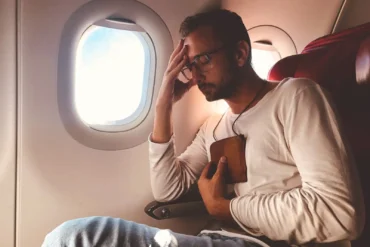Flight attendants play a crucial role in ensuring the safety and comfort of airline passengers. Whether on commercial or business aircraft, their responsibilities extend from pre-flight preparations to post-landing procedures. If you’re considering a career as a flight attendant, understanding the scope of this profession can guide your decision. In this article, we delve into the steps to become a flight attendant.
The Role of a Flight Attendant
Flight attendants serve as the frontline guardians of passenger well-being. They engage with travelers, address queries, and maintain a seamless experience throughout the journey. Here are some key responsibilities:
- Boarding Assistance: Flight attendants assist passengers during boarding, ensuring a smooth transition onto the aircraft.
- Seat Guidance and Luggage Handling: They help passengers locate their seats and stow their belongings securely.
- Vigilance for Security: Flight attendants monitor passengers for any unusual behavior or security concerns.
- Special Assistance: They provide support to passengers with small children or specific health needs.
- Safety Education: Flight attendants educate passengers on safety protocols and emergency procedures.
- Take-off and Landing Preparation: They prepare the cabin for take-off and landing.
- In-Flight Comfort: During the flight, attendants offer snacks, drinks, pillows, headphones, and other amenities.
- Calm Amid Turbulence: Flight attendants keep passengers at ease during turbulence or delays.
- Emergency Response: In critical situations, they assist passengers promptly.
- Smooth Deplaning: After landing, flight attendants ensure passengers exit safely.
Flight Attendant Salaries
The average hourly salary for flight attendants is $16.71. However, earnings can vary significantly, ranging from $7.25 to $41.05 per hour. Factors like seniority and experience play a crucial role in determining a flight attendant’s pay.
How to Become a Flight Attendant
1. Educational Foundation
Begin by securing your educational base. While a high school diploma or GED is the minimum requirement, consider pursuing a bachelor’s degree for enhanced employability. Relevant fields include marketing, hospitality, tourism, public relations, or communication.
2. Relevant Work Experience
Flight attendant positions are fiercely competitive. Elevate your chances by accumulating relevant work experience. Airlines seek candidates with a minimum of two years in hospitality, customer service, or sales. Showcase your ability to endure long hours, tackle challenges, and deliver exceptional service.
3. Craft Your Resume
Craft a compelling resume that spotlights your customer service prowess. Highlight professional and volunteer roles that honed your skills in handling demanding clientele. Emphasize experiences where you remained on your feet for extended periods or adeptly managed overtime. Be prepared—top airlines often open resume submissions for limited windows, so keep your resume at the ready.
4. Pass your flight attendant interview
Prospective flight attendants must successfully navigate interviews before embarking on their training journey. This process entails drug testing and background checks. Additionally, flight attendants must meet specific physical requirements: sufficient height to reach overhead bins and proportional weight. Correctable vision to 20/40 or better is essential, and overall health should be excellent.
Many employers employ video interviews to assess potential flight attendants. These interviews may be live or pre-recorded. If participating in a video interview, consider your surroundings carefully. Ensure a neat and quiet background, position the camera at eye level, and stabilize it for a clear, steady shot. Opt for conservative attire, as airlines prioritize a professional image. Note that most airlines prohibit facial piercings, visible tattoos, and unnaturally colored hair.
5. Training Program Completion
Airlines offer comprehensive training programs lasting three to six weeks. During these intensive sessions, you’ll immerse yourself in airport codes, master PA announcements, and learn essential job functions. In-flight emergencies become familiar territory. Expect around four supervised test flights, and aim for a minimum grade of 90% to soar as a certified flight attendant.
6. FAA Certificate of Demonstrated Proficiency
Upon completing your training, your employer will apply for your Federal Aviation Administration (FAA) Certificate of Demonstrated Proficiency. Each aircraft type requires a separate certificate. To maintain your certification, annual training is essential.
Frequently Asked Questions About Flight Attendants
If you’re considering a career as a flight attendant, you likely have several common questions. Let’s address some of the key queries related to this exciting profession:
What Qualifications Do You Need to Become a Flight Attendant?
Becoming a flight attendant requires as little as a high school diploma. However, essential qualities go beyond formal education. A courteous attitude, efficient problem-solving skills, attention to detail, stamina, professionalism, and exceptional customer service are crucial.
How Long Does It Take to Become a Flight Attendant?
If you’re considering a career as a flight attendant, you likely have questions about the timeline. The training program typically lasts three to six weeks. However, due to high demand and competition, gaining entry into these programs may take months or even years.
What Is a Flight Attendant’s Schedule Like?
Flight attendants often face unpredictable schedules, especially when starting their careers. These schedules, known as “lines,” are assigned based on seniority. Reserve flight attendants are on call for additional crew needs and may have only hours to reach the airport. Reserve attendants typically enjoy around 10 days off per month, while line holders can have 20 or more days off. Trip lengths vary, from quick round trips to extended two-, three-, or four-day journeys. Layovers average around 12 hours, during which hotels are provided.
What Perks Do Flight Attendants Enjoy?
Flight attendants revel in remarkable travel perks. Airlines often extend free standby flights to employees and their immediate family members, including spouses and children. Even when not flying for free, flight attendants benefit from significantly discounted airfare. Additionally, discounts on hotels, rental cars, and cruises enhance their travel experiences.
